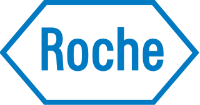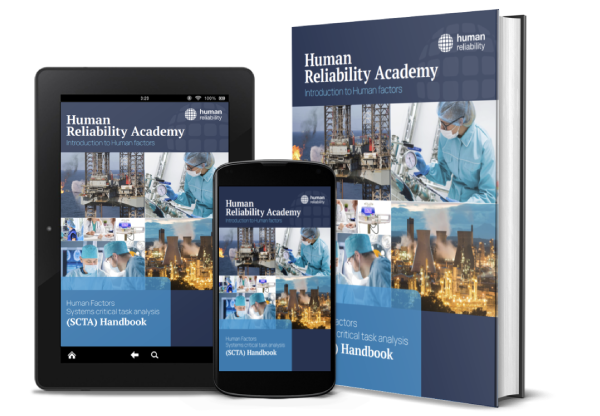Clients often turn to Human Reliability solutions when human error plays a significant role in serious incidents. Moreover, organizations that prioritize safety, quality, and availability goals also rely on Human Reliability practices.
Our team of human factor consultants specializes in identifying and analyzing problems. They employ various techniques such as task, error, and criticality analysis to develop effective solutions and strategies for error prevention.
Recognizing the underlying issue, there is a growing acknowledgement that many human performance problems result from the lack of an effective policy for managing Human Reliability. As a result, Human Reliability is increasingly engaged in conducting audits and evaluations that delve deeper into an organization’s quality and safety management strategy to identify weaknesses beyond the surface-level manifestations of the problem.
One of the first things a HSE inspector might want to see when conducting a Human Factors review is the policy documentation that outlines what should be done. We can assess and help develop such documentation for different HF Topic areas.
For example, we helped a client develop policy and guidance documents to embed Safety Critical Task Analysis (SCTA) at their site.
We worked together on SCTA activities, including an exercise on identifying and prioritising COMAH-critical tasks, and an SCTA workshop on a critical task. Additionally, some of the people from site attended our SCTA course to consolidate their learning.
We collaborated with the site to develop guidance documents that served to act as a benchmark for carrying out SCTAs in a manageable and sustainable manner. An example from the document developed was a standard for assuring human performance that outlines the competency requirements, the roles and responsibilities, and the actions to be taken related to the SCTA process.


One of the first things a HSE inspector might want to see when conducting a Human Factors review is the policy documentation that outlines what should be done. We can assess and help develop such documentation for different HF Topic areas.
For example, we helped a client develop policy and guidance documents to embed Safety Critical Task Analysis (SCTA) at their site.
We worked together on SCTA activities, including an exercise on identifying and prioritising COMAH-critical tasks, and an SCTA workshop on a critical task. Additionally, some of the people from site attended our SCTA course to consolidate their learning.
We collaborated with the site to develop guidance documents that served to act as a benchmark for carrying out SCTAs in a manageable and sustainable manner. An example from the document developed was a standard for assuring human performance that outlines the competency requirements, the roles and responsibilities, and the actions to be taken related to the SCTA process.
We were approached with a request to carry out a Safety Critical Task Analysis (SCTA) on starting an induction furnace.
Prior to the SCTA workshop, we used the SOP to develop an initial task analysis in the SHERPA software, and to identify potential high-risk actions and issues in the task analysis. We reviewed and developed this analysis with a multi-disciplinary team in the workshop.
We identified improvements that may benefit the site. One of them was to optimise the Human-Machine Interface (HMI) by adding some prompts and redesigning the screen so that it would help with the user experience. Prompts are a useful way to direct the operators’ attention to the screen as it requires them to take action to progress the task. Furthermore, we suggested some ways to include more visual feedback that would help the operators understand the status of the induction furnace. By including more salient cues like installing lights that reflect the induction furnace’s state, this provides the operator and the team the opportunity to build a mental model of the task, which will help reduce the likelihood of error. We also discussed limiting the energy provided to the induction furnace to reduce the chance of a super heat event. Overall, the analysis received a positive response from the site and they were keen to implement the actions suggested.


We were approached with a request to carry out a Safety Critical Task Analysis (SCTA) on starting an induction furnace.
Prior to the SCTA workshop, we used the SOP to develop an initial task analysis in the SHERPA software, and to identify potential high-risk actions and issues in the task analysis. We reviewed and developed this analysis with a multi-disciplinary team in the workshop.
We identified improvements that may benefit the site. One of them was to optimise the Human-Machine Interface (HMI) by adding some prompts and redesigning the screen so that it would help with the user experience. Prompts are a useful way to direct the operators’ attention to the screen as it requires them to take action to progress the task. Furthermore, we suggested some ways to include more visual feedback that would help the operators understand the status of the induction furnace. By including more salient cues like installing lights that reflect the induction furnace’s state, this provides the operator and the team the opportunity to build a mental model of the task, which will help reduce the likelihood of error. We also discussed limiting the energy provided to the induction furnace to reduce the chance of a super heat event. Overall, the analysis received a positive response from the site and they were keen to implement the actions suggested.
Learn more about our human factors consultancy solutions and get your questions answered with a quick call-back request.
Get the latest newsletter by signing-up today





This free 30 minute mini-course will introduce you to Human Factors, and how critical task reviews are used to improve the quality and safety of tasks and processes across different industries.
It’s free, informative and you’ll even get a certificate of completion.


This short and engaging handbook provides a great overview of Human Factors Systems Critical Task Analysis (SCTA) and how it helps people across sectors reduce error and improve human performance.
SCTA can help keep people safe and delivers value.


Popular Pages

© Human Reliability 2025.
1 School House, Higher Lane,
Dalton, Lancashire,
WN8 7RP, UK.
T: +44 (0) 1257 463 121
E: [email protected]